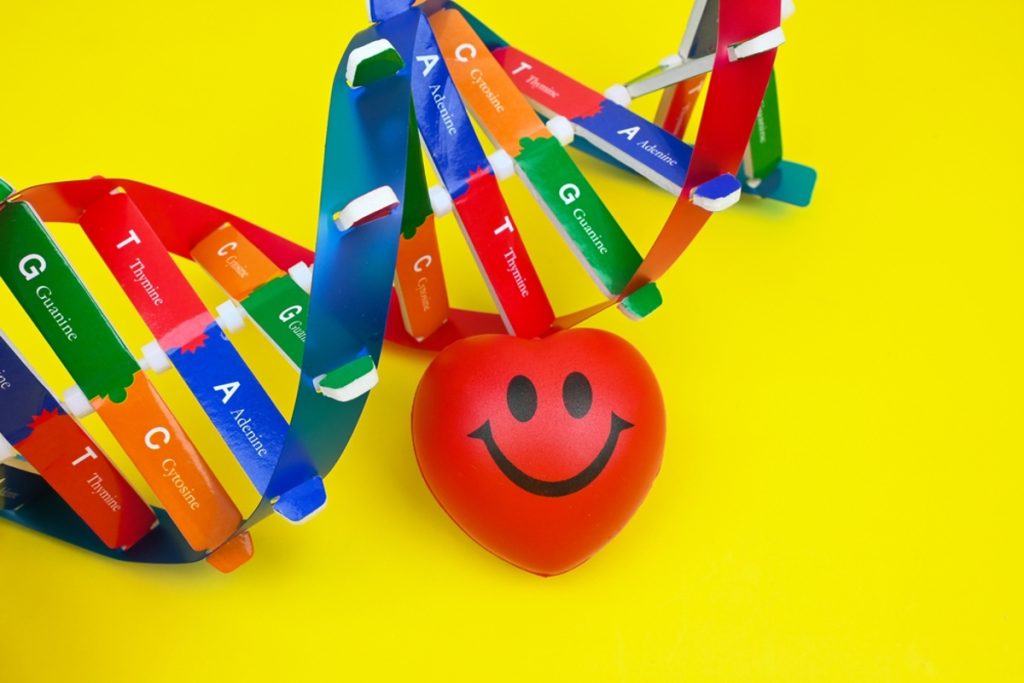This has nothing to do with addiction or recovery, but it has everything to do with how we live – and, really, with how we might die. Or how we increasingly will die if we don’t get a handle on the climate crisis. We’re speaking about, epigenetic inheritance, that is the issues passed along from the parent to child, which can be debilitating when it concerns the environment.
We need more data though, insists says Burcin Ikiz, a neuroscientist at the mental-health philanthropy organization the Baszucki Group. Our research into the health effects of the climate crisis is broad, he told Clayton Page Aldern at The Guardian. “We know what happens in the cardiovascular system; we know what happens in the respiratory system; we know what happens in the immune system. But there’s almost nothing on neurology and brain health.”
That’s put Ikiz on the case. Dr. Ikiz, who counts a start-up inducing stint at the revered Chan Zuckerberg Institute on her resume, is just the kind of bright science mind we’d want addressing this issue, especially if it means more light gets shed on the matter. Since Ikiz is passionate about making scientific knowledge accessible, available, and inclusive to everyone and has published in Psychology Today to prove it, she should be a shoe-in for the cause.
So too Yoko Nomura, who had found herself at the center of a natural experiment. Prior to Hurricane Sandy’s unexpected visit to New York, Nomura – who teaches in the psychology department at Queens College, CUNY, as well as in the psychiatry department of the Icahn School of Medicine at Mount Sinai – had meticulously assembled a research cohort of hundreds of expectant New York mothers. Her investigation, the Stress in Pregnancy study, had aimed since 2009 to explore the potential imprint of prenatal stress on the unborn. Drawing on the evolving field of epigenetics, Nomura had sought to understand the ways in which environmental stressors could spur changes in gene expression, the likes of which were already known to influence the risk of specific childhood neurobehavioural outcomes such as autism, schizophrenia and attention deficit hyperactivity disorder (ADHD).
Sandy put her in the thick of things.
According to Aldern, results of Nomura’s study shows “the conclusions reveal a startling disparity: children who were in utero during Hurricane Sandy bear an inordinately high risk of psychiatric conditions today. For example, girls who were exposed to Sandy prenatally experienced a 20-fold increase in anxiety and a 30-fold increase in depression later in life compared with girls who were not exposed. Boys had 60-fold and 20-fold increased risks of ADHD and conduct disorder, respectively. Children expressed symptoms of the conditions as early as preschool.”
Beyond Stormy Weather
It’s not just stormy weather either. You may have also noticed, for example, your own feelings of aggression on hotter days. You and everyone else – and animals, too. Black widow spiders tend more quickly toward sibling cannibalism in the heat. Rhesus monkeys start more fights with one another. Baseball pitchers are more likely to intentionally hit batters with their pitches as temperatures rise. US Postal Service workers experience roughly 5% more incidents of harassment and discrimination on days above 32C (89.6F), relative to temperate days.
Perhaps you’ve noticed that when the weather gets a bit muggier, your thinking does the same. That’s no coincidence; it’s a nearly universal phenomenon. During a summer 2016 heatwave in Boston, Harvard epidemiologists showed that college students living in dorms without air conditioning performed standard cognitive tests more slowly than those living with it. In January of this year, Chinese economists noted that students who took mathematics tests on days above 32C looked as if they had lost the equivalent of a quarter of a year of education, relative to test days in the range 22–24C. Researchers estimate that the disparate effects of hot school days – disproportionately felt in poorer school districts without access to air conditioning and home to higher concentrations of non-white students – account for something on the order of 5% of the racial achievement gap in the US.
Evidence comes from a variety of fields. Psychologists and behavioral economists have illustrated the ways in which temperature spikes drive surges in everything from domestic violence to online hate speech. Cognitive neuroscientists have charted the routes by which extreme heat and surging CO2 levels impair decision-making, diminish problem-solving abilities, and short-circuit our capacity to learn. Vectors of brain disease, such as ticks and mosquitoes, are seeing their habitable ranges expand as the world warms. And as researchers like Nomura have shown, you don’t need to go to war to suffer from post-traumatic stress disorder: the violence of a hurricane or wildfire is enough. It appears that, due to epigenetic inheritance, you don’t even need to have been born yet.
Epigenetic Inheritance is a Thing
Scary stuff. But just the stuff we’re made of. If epigenetic inheritance is to be a thing (and it seems it already is), then we’re going to have to put resources to tracking it – and taming it. Burcin Ikiz and Yoko Nomura would be a great start.
Healing Properties wholeheartedly thanks Clayton Page Aldern at The Guardian for his compelling piece on epigenetic inheritance, a piece we obviously cribbed from extensively. Sorry, but that’s what happens when a crack reporter duly reports on something we know nothing about. That’s not an excuse mind you; just a reason.
